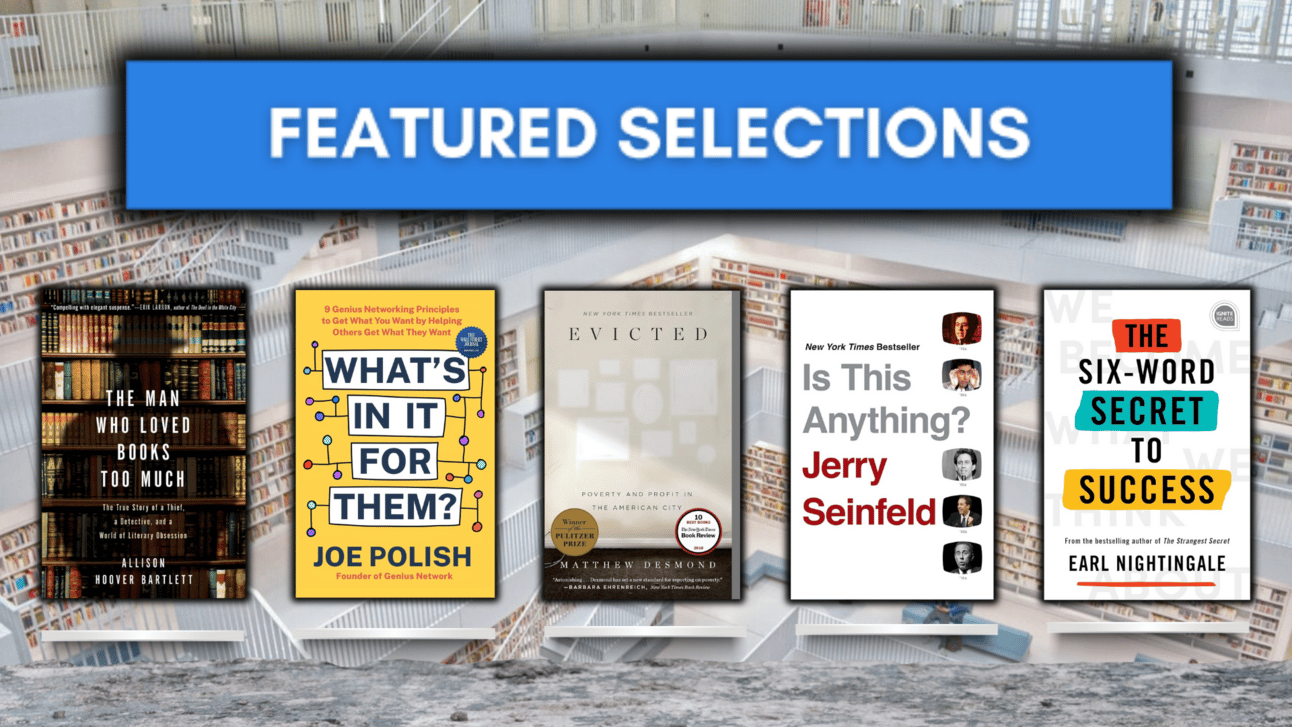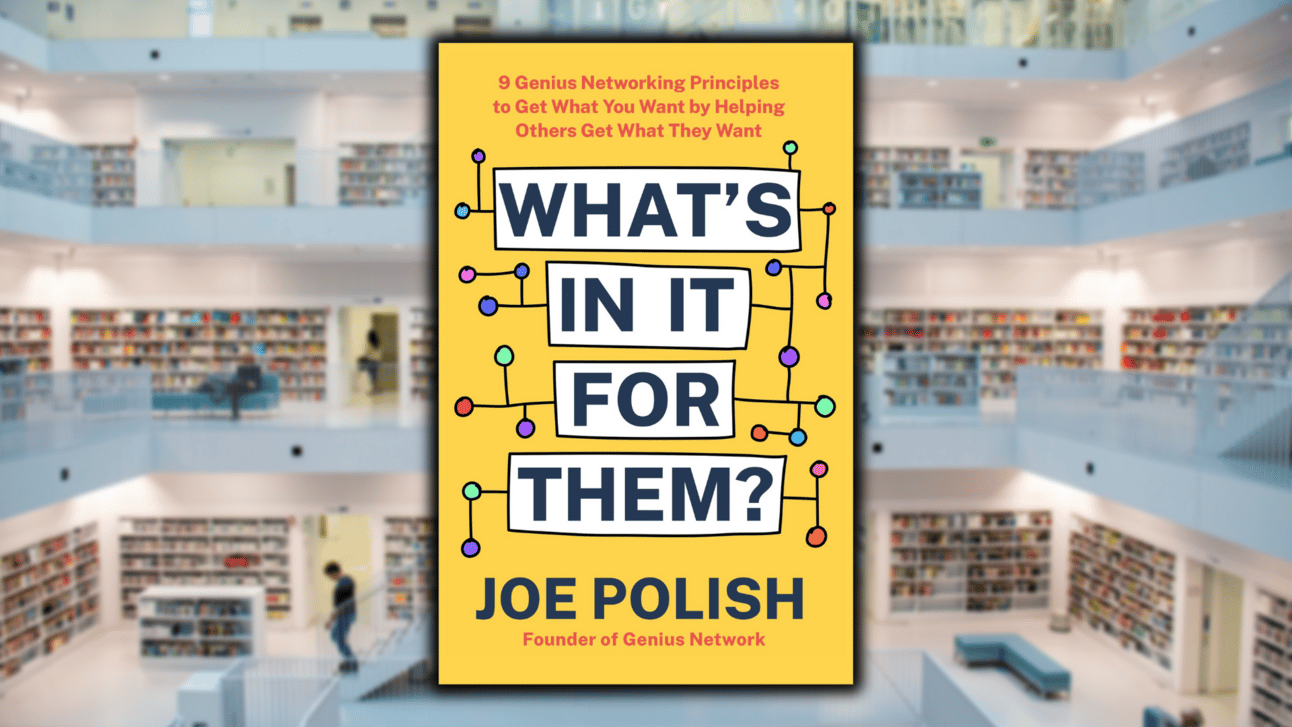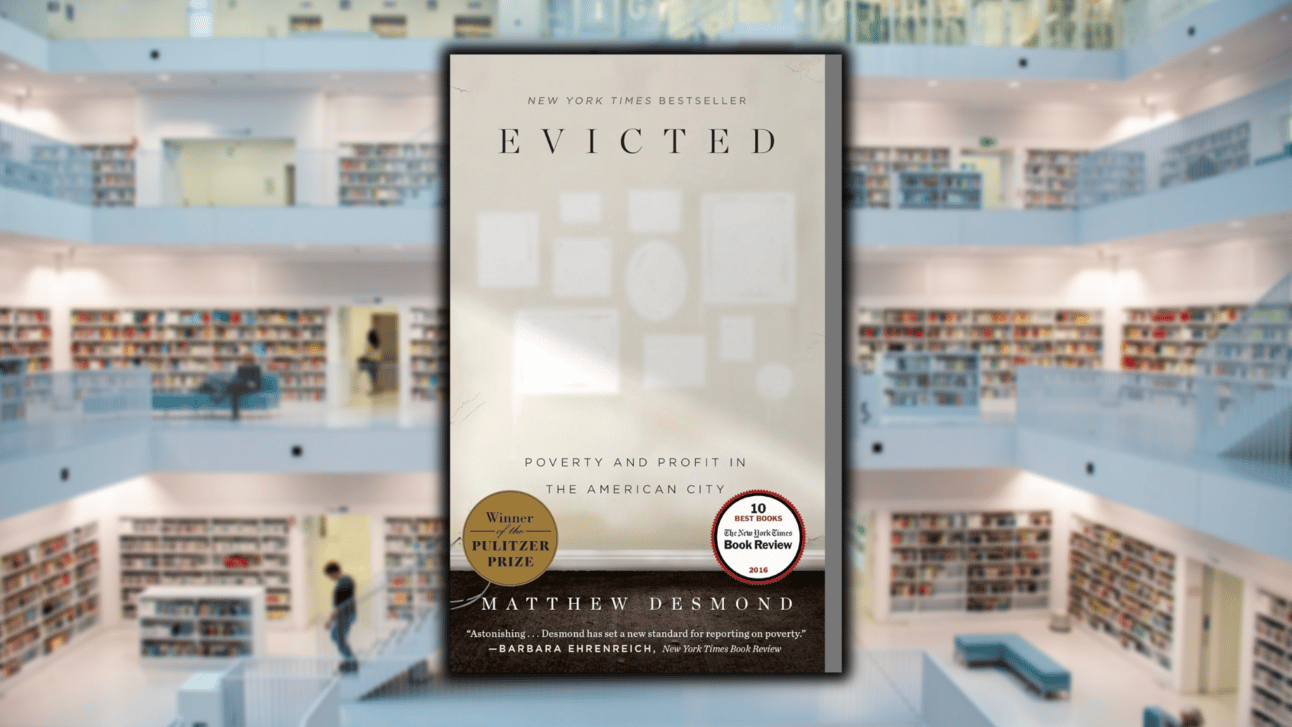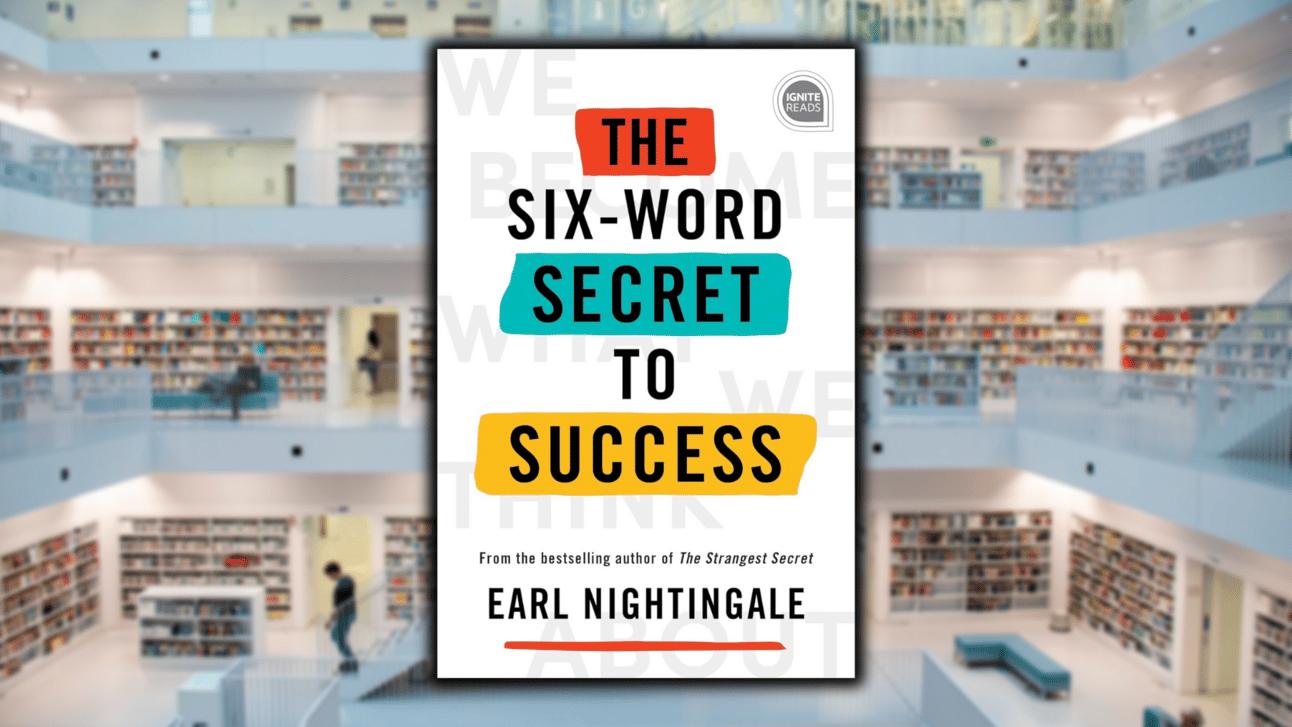I’m way late getting this edition of the newsletter out to you, but the five main books I’ve picked out for you tonight are timeless.
Definitely worth the wait.
I’ve also updated my Patreon book notes with summaries/notes from the following books:
The Everyday Stoic, by William Mulligan
Choose Your Enemies Wisely, by Patrick Bet-David
Getting There: A Book of Mentors, by Gillian Zoe Segal
How to Start a Cult, by Jody Raynsford
Along with a few others. As usual, all my summaries and notes from the 1,300+ books I’ve read since 2014 are on my Patreon.
In This Issue We’ve Got:
📖 What I’m Currently Reading
🧠 Who I’m Learning From Right Now
📜 Arnold Schwarzenegger on Failure and Dreams
🎥 What’s the Difference Between Books and Movies in the Brain?
✅ New Book Releases Coming Soon
📚 Tonight’s Five Main Book Recommendations
🏅 Earn Rewards for Referring This Newsletter
There’s a lot to get to, so let’s hit the books!
Play a Bigger Game, by Markus Kaulius: This is a book I’ve been looking forward to for a long time, and it just came out a few weeks ago. It’s about 7 “universal principles” you can use to experience true fulfillment and win at life.
Retirement Money Secrets, by Steve Selengut: Steve’s been an investor for 44 years(!) and this book details his investment strategy that works whether the market is going up or down. I just started this one, but I’m really enjoying it!
The Winner Effect, by Ian H. Robertson: A book I’ve been meaning to get into for a long, long time. The short, three-word summary is “winners keep winning.” The neurobiology behind that statement is fascinating, and the book is a wild ride.
Jon Brosio: Jon’s been a friend of mine for a while now, and I credit him with helping me make, maybe not my first dollar, but definitely my hundredth dollar online. And then some.
He’s certainly helped me make my business sustainable, and he’s always teaching me new monetization or content creation strategies that help me out tremendously.
Jason Fox: You’ve heard me mention Jason before, but I continue to learn from him about scaling a coaching business successfully - without losing sight of why I got into it in the first place.
Coaching’s hard - especially business coaching - and it’s not something you want to attempt without expert guidance from people like Jason.
Tim Denning: Back when I was first getting started on Medium, Tim Denning was one of the first writers to really show me what’s possible online. Lately, I've been gathering inspiration from him about growing on LinkedIn, where he has more than 500K followers now. Worth following for sure.
“Failure has never killed a dream; quitting kills every dream it touches.”
Are books better for your brain than movies? Does reading books make you more "cultured" or "sophisticated"?
In this video, I take a look at the differences between books and movies in the brain, and I also reveal the surprising way in which they are very similar.
If you got value from this video, please consider subscribing to my channel and sharing it with a friend. Cheers!
Watch the Video: What’s the Difference Between BOOKS and MOVIES in the Brain?
What’s Your Dream?, by Simon Squibb: Simon’s the founder of HelpBnk.com, and he started his first business when he was homeless at 16, later selling his agency for more money than he’ll ever need. Now, he’s built up a massive social media audience by giving free help to aspiring entrepreneurs and asking them, “What’s your dream?” This is his first book and I am HERE for it!
And now, here are my five main recommendations for tonight! They are…
I don’t want to keep you here all day (I’ve got reading to do), so let’s get right into it!

“He estimates that from the end of 1999 to the beginning of 2003, John Gilkey stole about $100,000 worth of books from dealers around the country. In the past decade, no other thief has been anywhere near that prolific.
What was even more unusual, though, was that none of the items Gilkey stole later showed up for sale on the Internet or at any other public venue.
It was this, combined with the inconsistency of Gilkey’s targeted titled (spanning a wide variety of genres and time periods) and the fact that some of the books he stole were not very valuable, that had Sanders convinced that he actually stole for love.
Gilkey loved the books and wanted to own them.”
Who among us has never thought about robbing a bookstore? I mean honestly. The Man Who Loved Books Too Much is the nonfiction account of the “appropriation” by one John Gilkey of a multitude of rare books, and the network of rare book dealers desperate to stop him. It’s also phenomenal.
Gilkey (whom the author gets to know up close and personally before her investigation is through) stole hundreds of thousands of dollars worth of rare books from book fairs, stores, and libraries all over America. He’s also completely fine with that, does not feel as though he’s doing anything wrong, and has no plans to stop stealing rare books.
You can think of this book as almost like a less violent In Cold Blood. Like Gonzo journalism with just a tad more objectivity and distance. It’s all those things and more, and it really does read like a great novel. I ripped through the whole thing in just a few sittings, completely captivated by the real-life characters that populate the world of rare books and literary obsession.

“The first secret to the successes I’ve had in life and business is simple: I invest more time, attention, money, effort, and energy into my relationships than I do anything else, and I do so on the longest timeline possible.”
They call him “the most connected businessman on the planet,” and this book is the distillation of Joe Polish's absolute best advice for creating and sustaining win-win relationships that last a lifetime.
Joe went from dead-broke carpet cleaner to founding Genius Network, one of the world’s most impactful networking groups for high-achieving entrepreneurs. This didn't happen by accident, and he didn't do it alone.
You can think of Joe's book almost like Dale Carnegie's How to Win Friends and Influence People for the 21st century.
While Carnegie's book is still absolutely worth reading, Joe's book represents the future of networking, while at the same time, the underlying themes and success strategies are as old as humanity itself.

"This degree of inequality, this withdrawal of opportunity, this cold denial of basic needs, this endorsement of pointless suffering - by no American value is this situation justified. No moral code or ethical principle, no piece of scripture or holy teaching, can be summoned to defend what we have allowed our country to become."
This nonfiction account of the nationwide scourge of homelessness in America has won pretty much every book award that I could name off the top of my head and dozens that I couldn't.
To name just a few, it's won The Pulitzer Prize, the National Book Critics Circle Award for Nonfiction, The PEN/John Kenneth Galbraith Award for Nonfiction, The Andrew Carnegie Medal for Excellence in Nonfiction, the Hillman Prize for Book Journalism, and many, many more.
So yes, it's good. In the book, Princeton sociologist Matthew Desmond takes to the field and follows eight families in Milwaukee as they battle the indignities and hardships of being poor in 21st-century America.
Economic exploitation is nothing new, but here, Desmond actually leaves the protected enclosure of academia and spends a significant amount of time experiencing first-hand what millions of Americans live with each and every day.
The basic premise of Evicted is that without stable shelter, everything else falls apart. This kind of stability is a fundamental human right, denied to far too many for far too long.

“The challenge with stand-up comedy is that you constantly have to justify why you should be the only one talking while a roomful of people sits quietly.”
This is one of those audiobooks that are much better than the physical book.
Jerry Seinfeld reads it himself, and interestingly enough, it’s also one of those audiobooks that you can’t speed up. His timing is just too perfect.
Usually, I’ll put an audiobook up to 1.3x speed, or 1.5x, sometimes even faster, depending on how familiar I am with the subject matter, but you can’t do that with this one because Jerry’s just so good at what he does.
With this book, you get a little bit of autobiography, and those parts are certainly interesting, but the bulk of the book is a collection of his best and favorite jokes from over his entire career. I’ve copied out a few of my favorites in my notes, but you really do have to listen to him tell them. So much better.

“I found myself especially fascinated with philosophy and psychology. But it wasn’t until one weekend when I was twenty-nine and working for CBS in Chicago that enlightenment came.
While reading, it suddenly dawned upon me that I had been reading the same truth over and over again for many years.
I had read it in the New Testament, in the sayings of Buddha, in the writings of Lao Tzu, in the works of Emerson. And all of a sudden, there they were, the words, in the proper order that I had been looking for, for seventeen years. The astonishing truth that we become what we think about.”
“We become what we think about.” That’s “the six-word secret to success,” but I did NOT just save you from reading the whole book, because you absolutely should.
Earl Nightingale was a legendary American broadcaster and his audio programs have been listened to by millions of people since 1956, when he released The Strangest Secret, a spoken word record that sold more than a million copies.
The Six-Word Secret to Success is similar to The Strangest Secret, but even more autobiographical and conversational. It’s not a radio broadcast, more of a quiet conversation between friends about life, meaning, and real success. The kind based on fulfillment and service, and not (exclusively) on external rewards.
Forward this to a friend you think would love this book!
If you were sent this newsletter, click here to subscribe.
To read past editions of The Reading Life, click here.
Click here to recommend The Reading Life on Twitter (X).
OK, that’s it for now…
More excellent book recommendations coming your way soon!
And if you’d like me to buy you a new book every month, (and rapidly scale your personal brand while earning more money in your business), click to join us inside The Competitive Advantage - we’d love to have you!
With that said, I hope you enjoyed this edition of The Reading Life, and enjoy the rest of your week!
Until next time…happy reading!
All the best,
Matt Karamazov
P.S. Whenever you're ready, here are three more ways I can help you:
Work with me personally to scale your business past $5K per month and experience the intoxicating freedom of finally being in control of both your time and your income. High-performers only.
Become a Premium Member of The Reading Life and enjoy unlimited access to 150+ Premium Book Breakdowns, my complete notes from 1,300+ books, exclusive discounts, monthly donations made on your behalf to an incredible literacy charity, and more!
Join The Competitive Advantage, my private business mastermind for creators looking to add at least $1,000/month to their revenue and save at least 20+ hours of productive time each and every week.






















